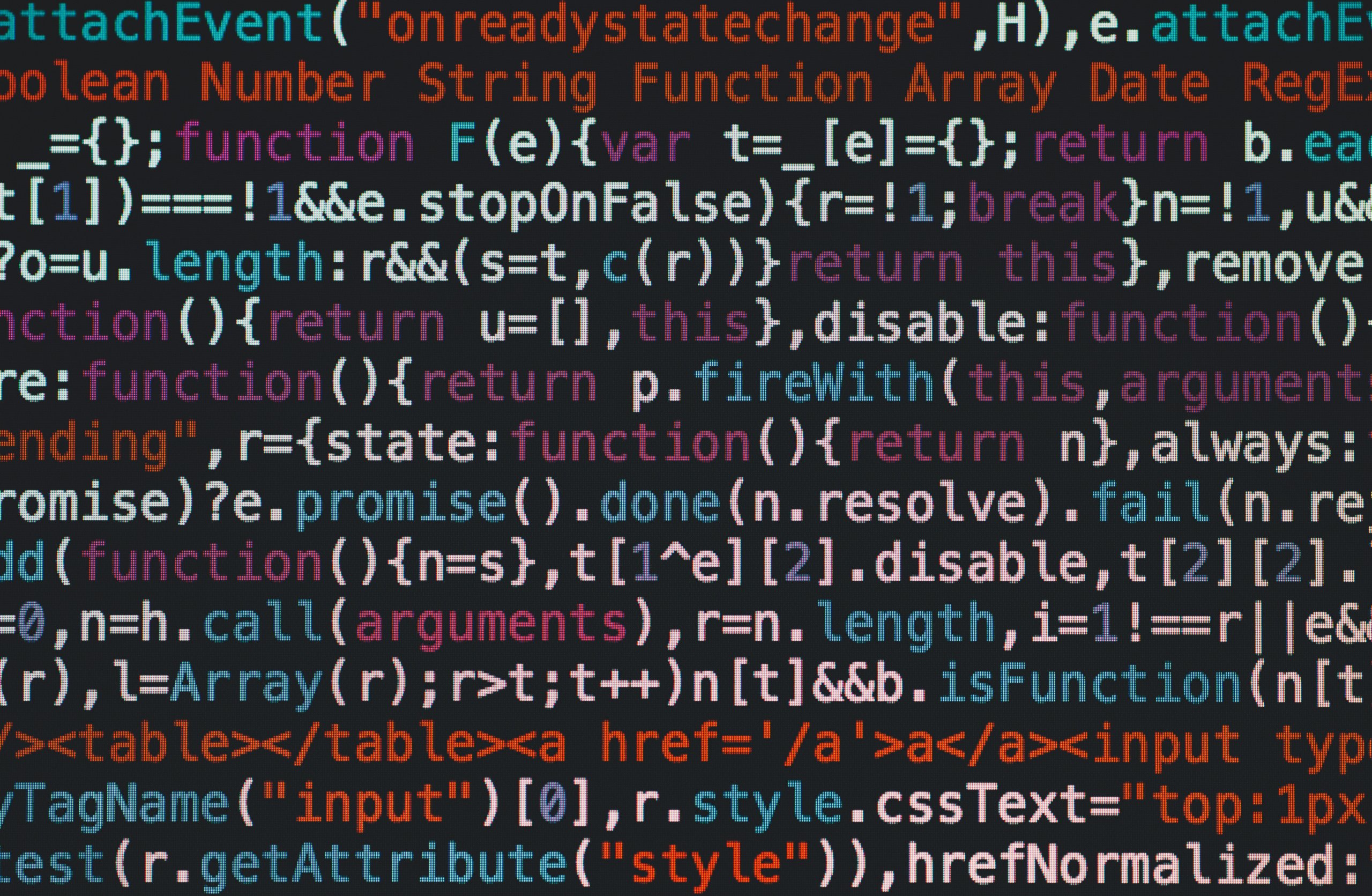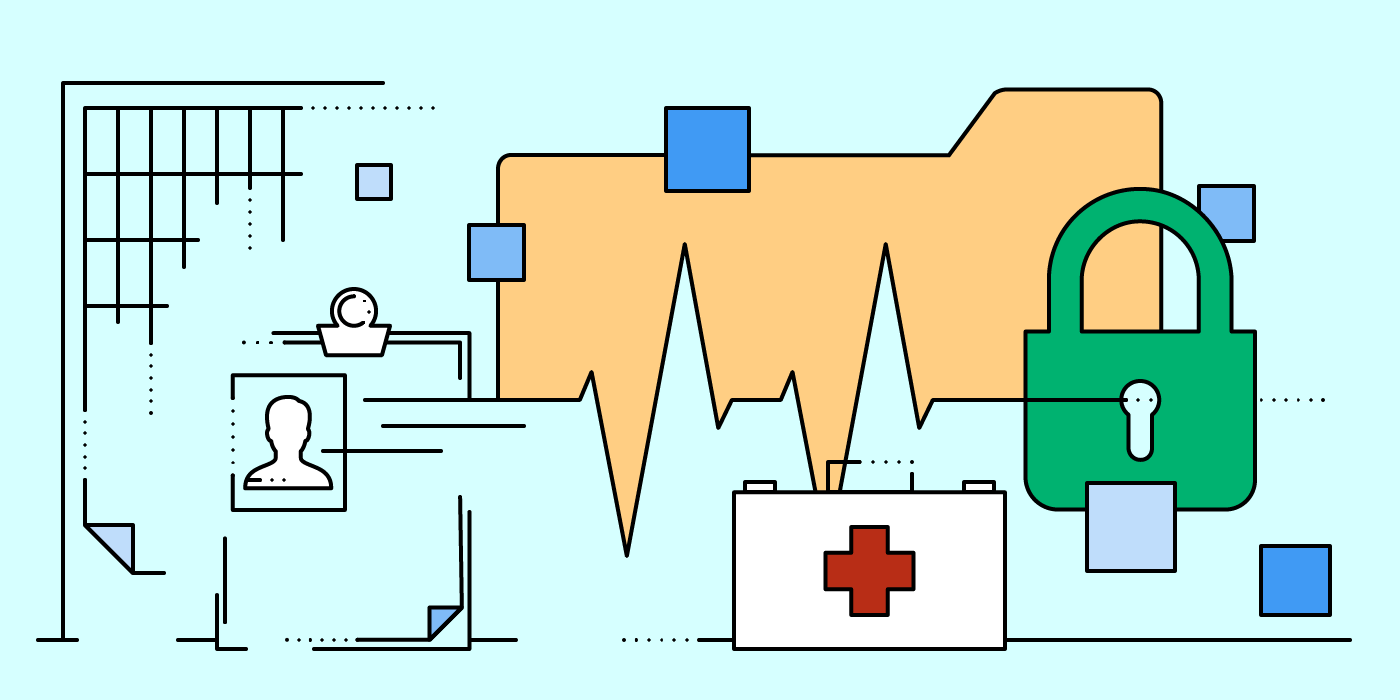 New advancements in data science, machine learning, and big data may be just what the doctor ordered for the healthcare industry. According to Global Market Insights, the market share of healthcare analytics is predicted to grow by 12.6% by 2025. Increased access to medical databases has opened up more possibilities for predictive analytics, focusing on reducing preventable diseases, and revolutionizing the efficiency and personalization of patient data and care.
New advancements in data science, machine learning, and big data may be just what the doctor ordered for the healthcare industry. According to Global Market Insights, the market share of healthcare analytics is predicted to grow by 12.6% by 2025. Increased access to medical databases has opened up more possibilities for predictive analytics, focusing on reducing preventable diseases, and revolutionizing the efficiency and personalization of patient data and care.
But while big data brings a variety of benefits to healthcare organizations, it also comes with a few unique challenges. Let’s delve into both sides of this equation.
The Monumental Benefits of Big Data in Healthcare
Medical data is rich with historical information, and examining a large number of medical records can yield obvious patterns into diseases, treatments, and patient health. Using big data and data science, medical developers can help healthcare providers turn health data into actionable insights. These insights can be vital to patients and their lives, and stakeholders like insurance companies, pharmaceutical enterprises, and healthcare providers benefit too.
Some major benefits include creating comprehensive patient profiles, enhancing the patient experience which leads to higher patient satisfaction, and optimizing hospital administrative workflows. Other benefits include making the healthcare industry more cost-effective, improving medical procedures by increasing efficiency, and finding patterns in treatment outcomes almost instantly. Patients can expect a more personalized approach to care, more accessible electronic health records (EHRs), and higher levels of engagement from their providers.
For the industry overall, there will be a major lift in productivity, efficiency, and quality of health services. And over time, the cost of analytics and data servers is expected to decrease while speed and capacity increase. Data science in healthcare creates a holistic profile of the patient in real-time while processing new information like diagnoses, lab results, medications, demographics, and procedures.
With such data collected from various sources, health systems can better analyze trends, predict outbreaks, and develop targeted interventions. The abundance of health-related data facilitates the identification of risk factors, early detection of diseases, and improved treatment plans as well as public health surveillance. By collecting data on a large scale, researchers and healthcare professionals can gain valuable insights that would be otherwise unattainable.
In conclusion, collecting and leveraging big data in the healthcare sector holds immense promise for improving patient outcomes, streamlining operations, managing hospital performance, and advancing medical knowledge and biomedical research. Embracing data-driven approaches will undoubtedly help with improving health outcomes for individuals and population health.
More Applications for Healthcare Providers
Several enterprises, large and small, like Cerner Corporation, IBM, San Francisco-based Oracle, and MedeAnalytics, have developed expertise in medical big data analysis both inside and outside of the clinical environment. These market leaders are pushing the boundaries of data science in healthcare while making the technology more accessible to smaller hospitals and those in rural areas.

Among the myriad applications of data science in healthcare and medicine, we’ve outlined a few key areas below.
Genomics
Genomics is an indispensable part of medicine and healthcare, and big data processing tools are helping sort out what’s most impactful from the rest. Using historical data, analysts can interpret and understand data to develop recommendations for sequencing experiments.
Predictive Analytics
The medical and healthcare industries can extract a lot of valuable insights from data, like predicting trends and behavior patterns to improve the patient experience and calculate the probability of medical outcomes based on past data and statistical analysis.
Medical Imaging
Although AI is doing a great job of helping radiologists find minute details in medical images, biomedical big data can help interpret X-rays, MRIs, and mammographies to find tumors, see patterns in the data, look for anomalies, and recommend next steps.
Monitor Patient Health
Healthcare providers can monitor their patients’ health by continuously storing and analyzing medical information from patients. Providers can also use analytics to monitor patient vitals like body temperature, heart rate, and blood pressure — all in real-time.
Provide Virtual Help
Patients can find virtual care with comprehensive platforms that provide secure video conferencing, an easy way to view a patient’s medical history, and a way to get back in touch with the doctor. There are also platforms that allow patients to enter their symptoms into a search bar to find possible diseases and causes of illness. The platform will subsequently offer recommendations on the next steps, providers nearby, and possible solutions.
Launch New Drugs
Using data science, pharmaceutical companies are predicting financials and the potential impact of a new drug by analyzing data from operational pipelines starting from the manufacturer and all the way down to the consumer.
Track and Manage Health Conditions
Providers can use data science to track potential cases that their patient is prone to. For example, patients with chronic diseases such as diabetes can benefit from constant tracking meals, blood glucose levels, and physical activity zones.
Overcoming Challenges of Big Data in Healthcare
Although the potential and promise of healthcare big data analytics seems endless, there are some challenges that have been uncovered. For example, there is always the lingering risk of cybersecurity attacks. Because healthcare data is private and requires the highest level of discretion, it’s imperative to layer robust data security protocols on top of any analytics application.
Other challenges in analyzing and processing big data include a shortage of IT professionals with relevant experience, ensuring medical data safety, and issues with data integrity. There are also issues surrounding the lack of regulations, best practices, and unified procedures.
In addition to the aforementioned challenges, healthcare system often grapples with high healthcare costs associated with implementing big data tools. The expense of procuring state-of-the-art hardware, software, and recruiting skilled data scientists can be significant. Furthermore, training existing staff to adeptly navigate these tools can add to the financial burden.
Another critical concern is the integration of disparate data sources. Health data comes from a myriad of sources like electronic medical records, insurance claims, clinical trials, and wearable devices, each with its own format, making data consolidation a complex task. This fragmentation often impedes the efficient extraction of insights, thus undermining the potential benefits of big data in healthcare.
Lastly, regulatory compliance poses a challenge, especially when dealing with sensitive patient data across different regions with varying privacy laws. Striking a balance between harnessing the power of big data and ensuring compliance with these regulations is a major hurdle for healthcare systems worldwide.
Access to Data and Technology in the Healthcare Industry
Giving hospitals, medical providers, and stakeholders in the healthcare industry access to technology for analyzing vast amounts of data has already made a positive impact on patients and providers. It has also improved the quality of health care by allowing us to predict trends, prevent diseases, monitor symptoms, manage health conditions, find better pharmaceuticals, and more accurately calculate dosages.
The advantages of big data in healthcare seems more than obvious. Human health professionals now have unprecedented access to clinical data, enabling them to gain valuable insights and patterns to improve patient care and treatment outcomes. From predictive analytics to medical imaging and genomics, big data analytics is revolutionizing medical decision-making and empowering providers to monitor patient health in real-time, offer virtual care solutions, and optimize treatment plans.
However, the adoption of big data in healthcare comes with hurdles. Security remains a top concern due to the sensitive nature of health data, demanding robust measures against cybersecurity threats. Additionally, addressing the shortage of IT professionals with relevant experience and ensuring data integrity are critical to fully harnessing the potential of big data technologies. Despite these challenges, the transformative impact of big data in healthcare is evident, as organizations leverage data-driven insights to enhance patient care and advance medical research. Through collaborative efforts among health professionals, data scientists, and policymakers, the healthcare industry can navigate challenges, seize opportunities, and continue on a trajectory of improved efficiency, reduced medical errors, and ultimately, better health outcomes for patients worldwide.
Using big data and data science, healthcare is poised to explode in growth and patient satisfaction. What will we use data analytics for next? As always, let us know your thoughts in the comments below!







